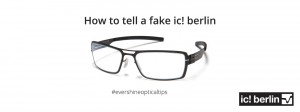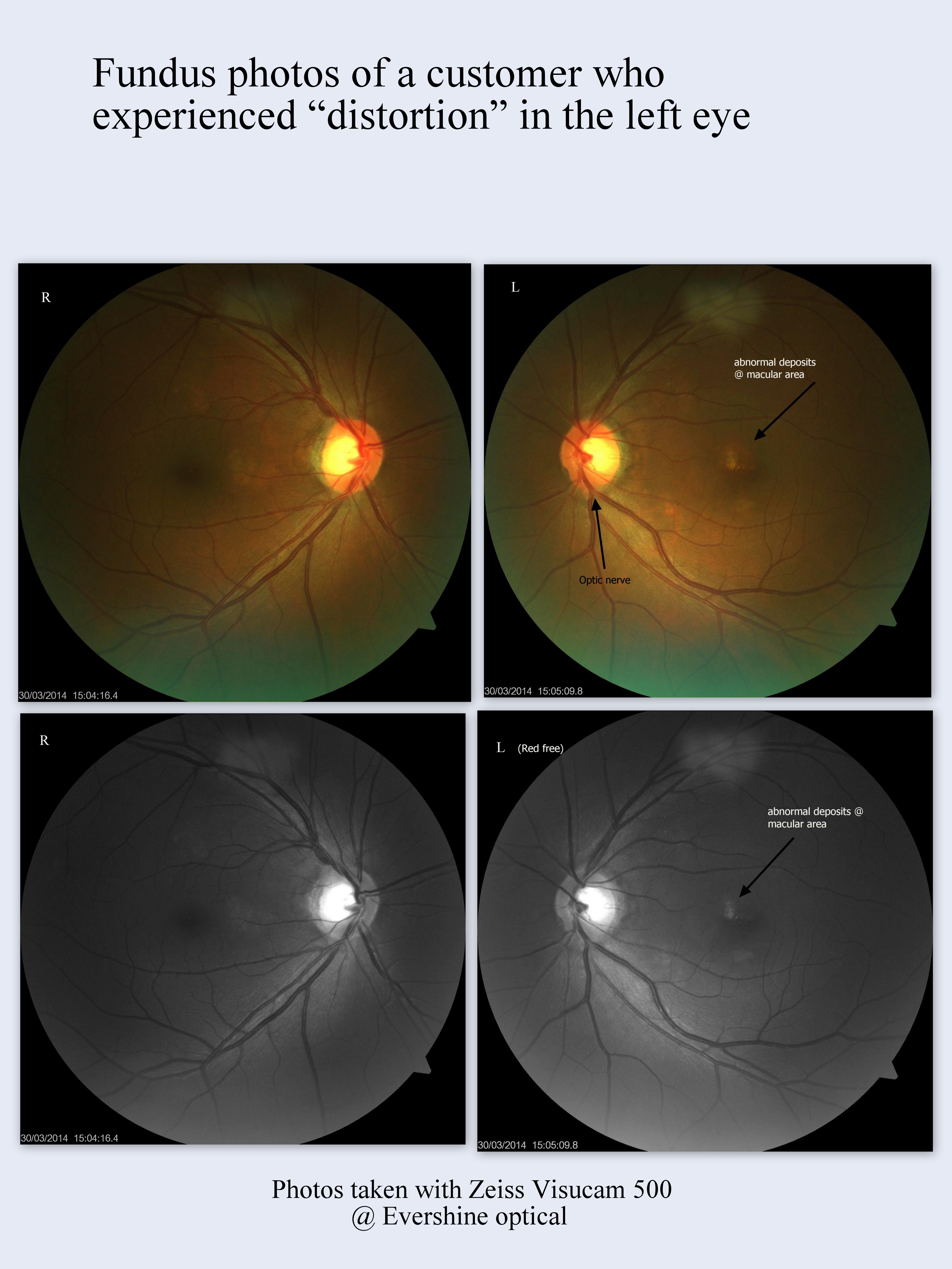Recently, a 57 year old male (let’s call him Mr KTJ ) came in wanting to get a pair of new glasses. The last time we checked his eyes was in 2006. Druing the eye exam by our qualified optometrist, he mentioned that some letters on the chart looked “slanted” when his left eye was being examined to get his eye degree. His vision on the left eye was also quite poor. The best line he can see is the 6/9 line with prescription.
If someone other than a qualified optometrist were to “test” his eyes, Mr KTJ’s remarks about the “slanting” letters and poor vision would be brushed off as “lazy eyes”. A pair of glasses would have been sold to him and the abnormality and poor vision would not have been detected or treated until it’s too late (which could sometimes mean blindness).
Further testing using an amsler grid showed that there was indeed distortion in the left eye. Our optometrist then examined his eyes using funduscopy to get a more magnified view of his left macular and detected some abnormality that causes the distortion experienced by Mr KTJ.

 Using our Zeiss Visucam 500 non mydriatic fundus camera, we were able to show Mr KTJ what is causing the distortion that he was experiencing.
Using our Zeiss Visucam 500 non mydriatic fundus camera, we were able to show Mr KTJ what is causing the distortion that he was experiencing.
We have since referred him to our trusted eye specialist doctors for further evaluation to find out the cause of the problem.
Mr KTJ did not notice the poorer vision in his left eyes because with both eyes, he can actually see very well. Some other eye diseases like glaucoma and diabetic retinopathy may not be noticed by customer themselves because there are no significant signs and symptoms until it’s too late.
So who are optometrists ?
Optometrists are primary eye care providers who specialize in performing eye examinations. Through the tests, they can detect eye-infections and common eye diseases such as cataract, glaucoma, diabetic retinopathy, age-related macular degeneration, all of which may be treatable if detected early.
In general, optometrists are qualified to:
- Perform refraction1 on patients who are adults, children or adolescents.
- Prescribe optical appliances such as glasses and contact lenses to correct vision problems such as short-sightedness, long-sightedness and astigmatism.
- Perform visual examination on patients and refer them to other healthcare practitioners such as ophthalmologist for further management if any eye abnormalities/diseases are detected.
- Perform any other type of practice of eye care which is part of the practice of opticianry (eg. dispensing and fitting of glasses and contact lenses).
http://www.healthprofessionals.gov.sg/content/hprof/oob/en/topnav/about_optometristsopticians.html
